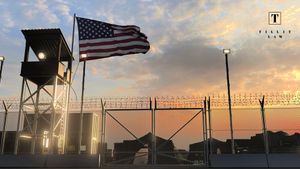The Sovereign Acts Doctrine allows the federal government to avoid liability arising from its actions as a sovereign. As relevant to federal contracts, the doctrine seeks to reconcile the government’s dual roles as a contracting party and a sovereign. It ensures that the government’s generally applicable public acts do not create contractual liability due to their incidental impacts on specific government contracts. Restrictions in response to COVID-19 and government shutdowns are examples of sovereign acts impacting federal contracts. When in breach of a contract, the government may invoke the Sovereign Acts Doctrine as an affirmative defense.
When invoking this defense, the Government asserts that it is not liable for breaching the contract as the breach occurred due to incidental consequences of a sovereign act. Adjudicative forums generally utilize a two-part test to determine whether the Sovereign Act Defense applies. Firstly, the government’s sovereign act must be public, general, and only incidentally fall upon the contract or order. Secondly, the sovereign act must render performance by the government acting as a private contractor impossible or impracticable under the general principles of contract law. Notably, the defense only applies when there has been a breach of contract. In other words, the existence of a contractual breach is a prerequisite to the applicability of the sovereign acts defense.
In situations where a sovereign act has adversely impacted contract performance by either causing delays or increasing costs, contractors should first assess whether the act in question was explicitly directed toward their contract. If the answer is yes, the act is not public and general, and the government will not be relieved of its liability. In the COVID-19-related claims, contractors often found this hurdle challenging to overcome. That is, the contractors found it challenging to prove that the government restrictions impacting their contracts were actions directed specifically at their contracts.
Secondly, in invoking the affirmative sovereign acts defense, the government is required to prove that the sovereign act rendered its performance as a contracting party impossible or impracticable under the principles of contract law. In such cases, the government’s burden of proof is similar to a private contractor’s burden in an impracticability claim. In StructSure Projects, Inc., ASBCA No. 62927, which was a relatively rare successful contractor claim involving COVID-19 restrictions, the government could not prove that its performance under the contract was rendered impossible or impracticable due to the restrictions. Consequently, the government failed to affirmatively raise the sovereign acts defense.
In that case, due to COVID-19 restrictions, non-essential contractor employees were denied physical access to the base and were therefore unable to perform on the task order, which involved design and alteration services at the David Grant Medical Center on the Travis Air Force Base. It was undisputed that the government’s denial of access to contractor personnel was a sovereign act. However, the government’s duty of cooperation for a specific contract line item involving temporary phasing facilities remained unimpacted by the restrictions. Notably, during the period when the COVID-19 restrictions were in effect, the government continued using temporary phasing facilities for storage purposes and ongoing treatments of patients. Since the physical availability of contractor personnel was not necessary for successful performance under the phasing facilities line item, the government’s duty to cooperate remained unaffected by the COVID-19 restrictions. Consequently, the government’s performance of its cooperation duties for the phasing facilities line item was not rendered impossible or impracticable. Additionally, the ASBCA determined that the contractor successfully delivered performance on the separate phasing facilities line item. Therefore, there was no evidence that the government breached its duties under the contract. Since the government did not breach its duties as relevant to the line item and the contractor successfully delivered performance under it, the Board found that the Sovereign Acts doctrine was inapplicable. Thus, the contractor could recover the costs of providing the temporary phasing facilities during the stoppage of work, despite it being a fixed-price contract.
The Sovereign Acts Doctrine presents a somewhat complex legal landscape for federal contractors because it shields the government from liability for the consequences of its public and general actions taken as a sovereign. When facing the government’s affirmative invocation of the Sovereign Acts Doctrine, contractors should aim to prove that the sovereign act was not public and general and was specifically directed at their contract. If that proves unsuccessful, contractors should attempt to prove that the sovereign act did not render the government’s performance of its duties impossible or impracticable under general principles of contract law. Such an argument is strongly supported by demonstrating that performance was successfully delivered under the contract, as the doctrine is inapplicable in the absence of a contractual breach.
This Federal Contract Claims Insight is provided as a general summary of the applicable law in the practice area and does not constitute legal advice. Contractors wishing to learn more are encouraged to consult the TILLIT LAW PLLC Client Portal or Contact Us to determine how the law would apply in a specific situation.





